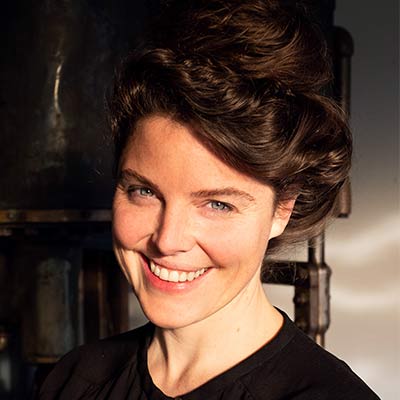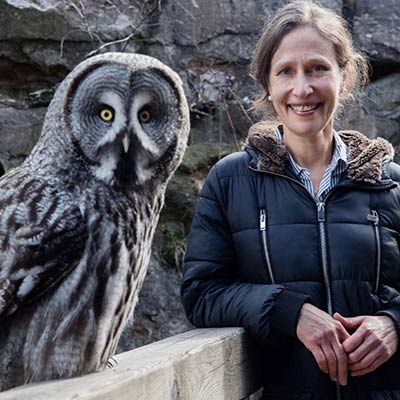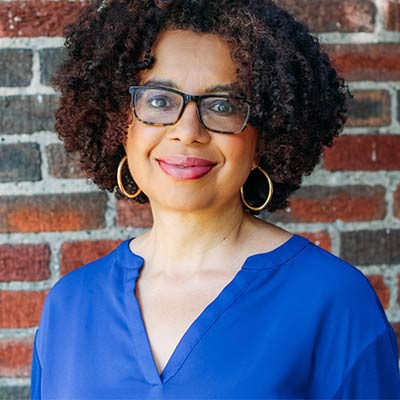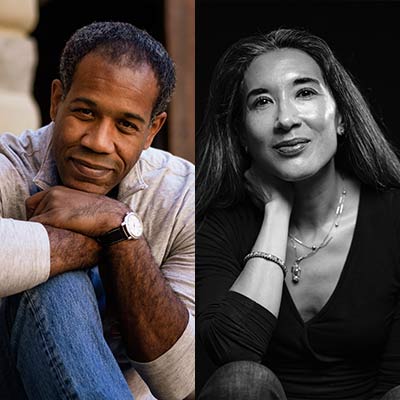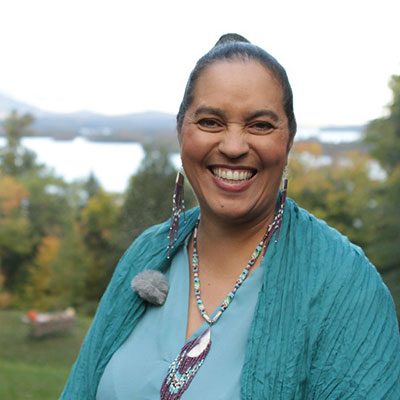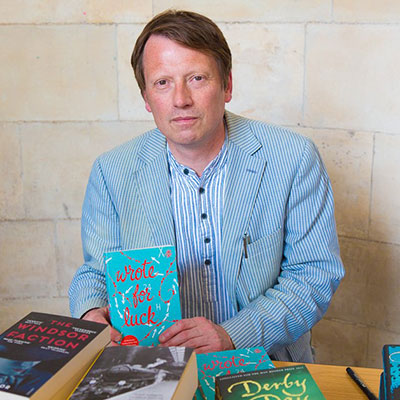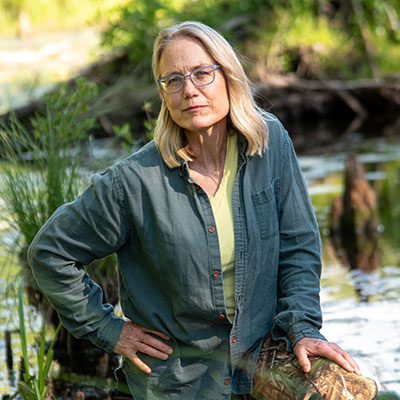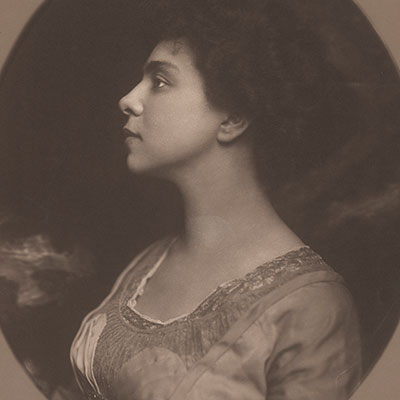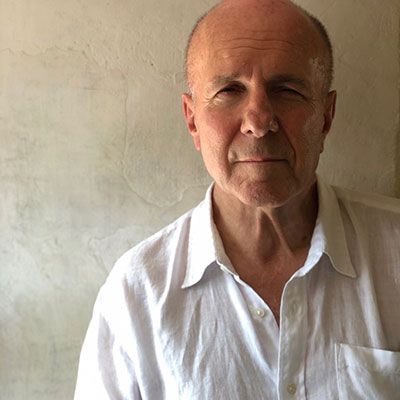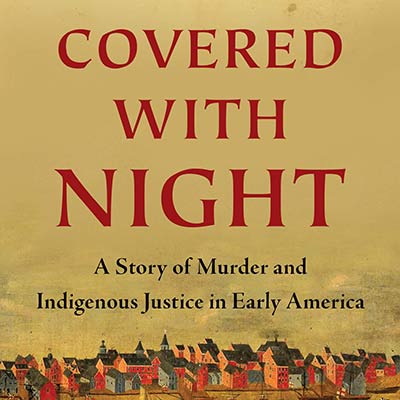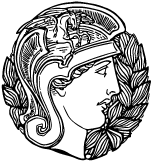The Herreshoff Manufacturing Company is probably not a name that your average Rhode Islander would recognize today, but during the Gilded Age, the name “Herreshoff” was as Rhode Island as a trip to Rocky Point or a clam bake. The Herreshoff Manufacturing Company (or HMCo., as it was known) dominated the Rhode Island boatbuilding industry between the 1870s and 1940s, producing ground-breaking torpedo boats and catamarans, fine steam and sailing yachts, winning America’s Cup defenders, and flying boats. The name was recognized around the world as an example of excellence in Rhode Island industry and manufacturing. In some 70 years of operations, this vertically integrated company built more than 2,000 boats on the now-historic site in Bristol, RI which is occupied today by the Herreshoff Marine Museum. Join curator Evelyn Ansel to learn about this fascinating company and its place in the history of Rhode Island innovation.
EX LIBRIS: What an Owl Knows with Jennifer Ackerman
For millennia, owls have captivated and intrigued us. Our fascination with these mysterious birds was first documented more than 30,000 years ago in the Chauvet Cave paintings in southern France. With their forward gaze and quiet flight, owls are often a symbol of wisdom, knowledge, and foresight. But what does an owl really know? And what do we really know about owls? Scientists have only recently begun to understand in deep detail the complex nature of these extraordinary birds. Some 260 species of owls exist today, and they reside on every continent except Antarctica, but they are far more difficult to find and study than other birds because they are cryptic, camouflaged, and mostly active in the dark of night. Join Jennifer Ackerman, bestselling author of What an Owl Knows: The New Science of the World’s Most Enigmatic Birds, in a multimedia presentation on what we have learned lately about the nature of the world’s most enigmatic birds. With remarkable photos, videos, and audio recordings, Ackerman explores the rich biology and natural history of owls and examines remarkable new scientific discoveries about their brains and behavior.
The Q&A portion of this program will be recorded for the Athenæum’s archives.
EX LIBRIS: The 272 with Rachel Swarns
In 1838, a group of America’s most prominent Catholic priests sold 272 enslaved people to save their largest mission project, what is now Georgetown University. The 272: The Families Who Were Enslaved and Sold to Build the American Catholic Church, journalist, author, and professor Rachel Swarns follows one family through nearly two centuries of indentured servitude and enslavement to uncover the harrowing origin story of the Catholic Church in the United States. Through the saga of the Mahoney family, Swarns illustrates how the Church relied on slave labor and slave sales to sustain its operations and to help finance its expansion. The family’s descendants would remain apart until Swarns’s reporting in The New York Times finally reunited them. They would go on to join other GU272 descendants who pressed Georgetown and the Catholic Church to make amends, prodding the institutions to break new ground in the movement for reparations and reconciliation in America.
This event is presented as part of the Expansive Histories of the Early Americas, in partnership with the John Carter Brown Library.
EX LIBRIS: Gregory Pardlo & Tina Cane
Pulitzer Prize-winning poet Gregory Pardlo and recent Poet Laureate of Rhode Island Tina Cane will join forces once again at the Providence Athenæum – this time to celebrate the release of Pardlo’s new collection, Spectral Evidence (Penguin/Random House, 2024). Elegant, profound, and intoxicating, Spectral Evidence, Pardlo’s first major collection of poetry after winning the Pulitzer Prize for Digest, has been hailed as “complex, linguistically rich, and unsparing in its analysis of both the current national psyche as well as the poet’s own,” (Library Journal).
Tina Cane will read new work, as well as poems from her most recent collection, Year of the Murder Hornet (Veliz Books, 2022), which Donald Revell called “a book of virtues and humane understanding…both urgent and durable” which establishes “a rule of heart and of vivid allegiances…not only valid but redemptive.” The readings will be followed by a conversation between the poets.
Sponsored by the Philbrick family
EX LIBRIS: Belongings, Archives, & Indigenizing Design
Executive Director of Tomaquag Museum, Lorén Spears, Narragansett, will share the history of the museum as well, as strategies around decolonizing and Indigenizing museum policies and processes, the design of collections and archives within the current museum, and planning for a new museum campus. The Q&A portion of the program will be moderated by Kim Toney, the John Carter Brown Library Coordinating Curator for Native American and Indigenous Collections.
Presented with the John Carter Brown Library as part of the Expansive Histories of the Early Americans program series.
EX LIBRIS: Orwell
Over seventy years since his premature death, George Orwell has become one of the most significant figures in western literature. His two dystopian masterpieces, Animal Farm (1945) and Nineteen Eighty-Four (1949) have together sold over 40 million copies. Even now, he continues to exert a decisive influence on our understanding of international power-politics.
D.J. Taylor’s new biography Orwell: The New Life, the first full-length study for 20 years, draws on a wide range of previously unseen material – newly-discovered letters to old girlfriends and professional colleagues, the recollections of the dwindling band of people who remember him, new information about his life in the early 1930s – to produce a definitive portrait of this complex, driven and self-mythologizing man.
EX LIBRIS: Beaverland
In Beaverland: How One Weird Rodent Made America, Leila Philip explores how this amazing animal has played an outsized role in American history and can play an important role in its future. She follows fur trappers who lead her through waist high water, fur traders and fur auctioneers, as well as wildlife managers, PETA activists, Native American environmental vigilantes, scientists, engineers, and the colorful group of activists known as beaver believers.
What emerges is a poignant personal narrative, a startling portrait of the secretive world of the contemporary fur trade, and an engrossing ecological and historical investigation of these heroic animals who, once trapped to the point of extinction, have returned to the landscape as one of the greatest conservation stories of the 20th century. Beaverland reveals the profound ways in which one odd creature and the trade surrounding it has shaped history, culture, and our environment.
Check out Leila’s recent appearance on CBS Sunday Morning!
EX LIBRIS: A Librarian’s Legacy
Belle da Costa Greene (1879–1950) was one of the most prominent librarians in American history. She ran the Morgan Library for forty-three years – initially as the private librarian of J. Pierpont Morgan and then his son, Jack, and later as the inaugural director of the Pierpont Morgan Library (now the Morgan Library & Museum). Not only did Greene build one of the most important collections of rare books and manuscripts in the United States, but she also transformed an exclusive private collection into a major public resource, originating the robust program of exhibitions, lectures, publications, and research services that continues today.
The Morgan Library & Museum will open a major retrospective exhibition on Belle Greene in the fall of 2024. The show’s curatorial lead, Philip S. Palmer, will speak about Greene’s storied life and career, from her roots in a predominantly Black community in Washington, D.C., to her distinguished career at the helm of one of the world’s great research libraries. Philip will preview a selection of objects appearing in the show, discuss two projects related to Belle Greene’s letters, and explore her enduring legacy as a cultural heritage executive.
Sponsored by the Richard & Barbara Bell Fund for Social Justice
EX LIBRIS: Simon Winchester
Simon Winchester has long been a font of far-reaching, deep-digging, and sometimes delightfully arcane knowledge: from the stories of all-but-forgotten men who shaped civilization to the secrets of the world’s great oceans to seismic catastrophes that literally changed the world. Now, this New York Times bestselling author takes on his most elemental subject – knowledge itself.
In Knowing What We Know: The Transmission of Knowledge: From Ancient Wisdom to Modern Magic, Winchester takes a millennials-long journey through the story of how knowledge has been acquired, stored, and passed on, how that dissemination has evolved with time, and how – in an age where a world of information is just a cell phone away – the thoughtfulness and wisdom that derives from knowledge might be under threat.
Winchester takes us back to before the ancients Greeks, to medieval Germany and Victorian Belgium, to the creation of the first encyclopedias and the phenomenon of Wikipedia, and even to contemporary Bangalore, India, where a network of schools ignites the spark of curiosity for once-hopeless slum children. The human impulse to know things, to understand what they mean, and to apply that understanding has been the bulwark of civilization. But nowadays, Winchester wonders, when the information in any library can be retrieved effortlessly on a handheld device, what are the implications for humankind? If computers are more powerful than even the greatest human brains, what will it mean for society? If we no longer have a need for knowledge – if computers do it all for us – then what is human intelligence even for? In short: What is knowledge without wisdom? And what would a world without wisdom look like?
EX LIBRIS: Covered with Night
In the winter of 1722, on the eve of a major conference between the Five Nations of the Haudenosaunee (also known as the Iroquois) and Anglo-American colonists, a pair of colonial fur traders brutally assaulted a Seneca hunter near Conestoga, Pennsylvania. Though virtually forgotten today, the crime ignited a contest between Native American forms of justice – rooted in community, forgiveness, and reparations – and the colonial ideology of harsh reprisal that called for the accused killers to be executed if found guilty. In her Pulitzer Prize-winning book Covered with Night, historian Nicole Eustace reconstructs the attack and its aftermath, introducing a group of unforgettable individuals – from the slain man’s resilient widow to an Indigenous diplomat known as “Captain Civility” to the scheming governor of Pennsylvania – as she narrates a remarkable series of criminal investigations and cross-cultural negotiations. Taking its title from a Haudenosaunee metaphor for mourning, Covered with Night ultimately urges us to consider Indigenous approaches to grief and condolence, rupture and repair, as we seek new avenues of justice in our own era. Eustace will be joined in conversation by Karin Wulf, the Beatrice and Julio Mario Santo Domingo Director and Librarian at the John Carter Brown Library.
This program is presented as part of the Expansive Histories of the Early Americas program series, in partnership with the John Carter Brown Library.



